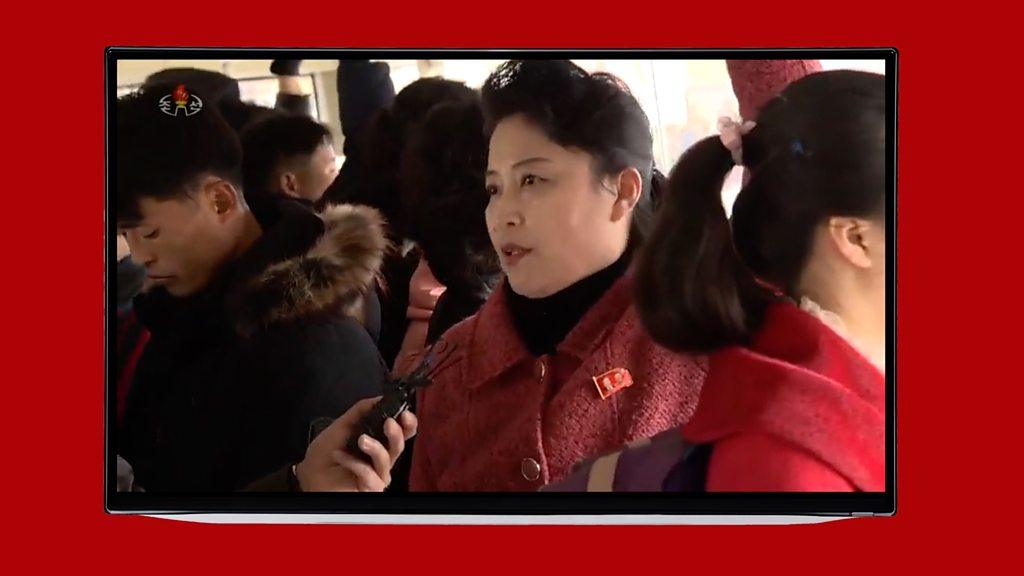Kim Trump summit: North Korean leader talks up denuclearisation
- Published
US President Donald Trump and North Korea's Kim Jong-un are meeting for a second day of talks
North Korea's leader Kim Jong-un has told reporters that he would not be at a summit with US President Donald Trump if he were not ready to denuclearise.
The leaders are in Vietnam for talks on nuclear disarmament. They are under pressure to reach concrete measures after making little progress following a historic first summit last year.
But the summit has been cut short by two hours and it's not clear why.
Mr Trump earlier said there was "no rush" to reach a deal.
But when Mr Kim told reporters that if he was not ready to denuclearise he "wouldn't be here", the US leader responded: "That might be the best answer you've ever heard."
Analysts say it remains unclear what exactly Mr Kim means by denuclearisation.
The pair were holding a discussion at a conference table with aides and cameras present, after the first round of closed-door discussions in the Vietnamese capital, Hanoi.
Mr Trump and Mr Kim are believed to be discussing a roadmap for removing nuclear weapons from the Korean peninsula and could also announce a formal treaty ending the Korean War or even the establishment of liaison offices.
What's on the table for talks?
The first summit last June in Singapore between two leaders who had previously only exchanged vitriol was certainly a historic moment. Now, they are both very conscious of the need to answer their critics with signs of concrete progress.
Washington had previously said North Korea had to unilaterally give up its nuclear weapons before there could be any sanctions relief, but that condition is known to be a sticking point for the North Koreans.
Speaking ahead of their talks, Mr Trump appeared to again address scepticism about the success and progress of their last summit, saying he wanted to get the "right deal".
"I've been saying very much from the beginning that speed is not that important to me. I very much appreciate no testing of nuclear rockets, missiles, any of it," Mr Trump said, adding that he had "great respect" for Mr Kim.
Meanwhile, answering his first question from a foreign reporter, Mr Kim said: "It's early to tell, but from my instincts, I do have a feeling that good results will emerge."
The moment Kim Jong-un answered a question from a foreign reporter.
He said people seeing him alongside Mr Trump would think they were watching a "fantasy movie". At the end of 2017, when they were both threatening each other with war, Mr Trump called Mr Kim "little rocket man", and Mr Kim said Mr Trump was a "mentally deranged dotard".
They emerged from their first session after about 30 minutes and took a brief stroll in the courtyard, joined by their chief advisers - Kim Yong-chol for Mr Kim and Secretary of State Mike Pompeo - and interpreters.
When asked by reporters afterwards if he would allow a US liaison office in the North Korean capital, Pyongyang, Mr Kim said it was something he would "welcome". Mr Trump replied it was "not a bad idea - both ways".
There is no direct channel between the US and North Korea at the moment and a liaison office would be the first step to normalise relations between the two countries.
Mr Kim was also asked if they were discussing the issue of human rights in his country, a subject that was not raised in Singapore. Mr Trump - who separately warned reporters not to "raise" their voices with Mr Kim - stepped in and said they were "discussing everything". Mr Kim did not answer.
How will the day of talks unfold?
The leaders are holding a series of meetings at the Metropole hotel in Hanoi.
It is unclear if a "joint agreement signing ceremony" will still be held and Mr Trump has brought forward a news conference, which is now scheduled for 14:00 local time (07:00 GMT).
It is also not clear what any joint agreement might include although there have been working level talks between North Korea and the US in recent weeks.
So what should we expect?
The tone of the talks was set in a dinner on Wednesday when Mr Trump described Mr Kim as a "great leader" and said he looked forward to helping him achieve a "tremendous" economic future for North Korea.
Mr Kim called the US president "courageous" in return and said he was confident there would be an "excellent outcome that everyone welcomes".
Analysts have long warned that full denuclearisation is very unlikely but speculation on what we should look out for includes:
Any concrete signs of progress on nuclear disarmament such as an agreement from North Korea to disclose details of its nuclear weapons programme
Any agreement on dismantling elements of the Yongbyon nuclear reactor in the North - this could be in exchange for paving the way for the easing of sanctions
The possibility of a peace declaration putting a symbolic end to the Korean War
Further agreements on issues like the return of Korean war remains or liaison offices
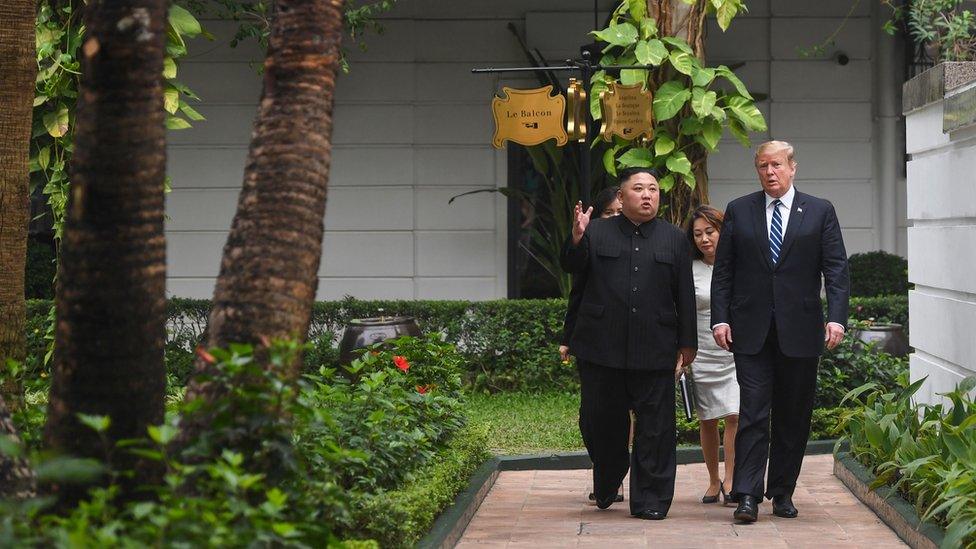
The leaders took a brief stroll in the courtyard during a break in talks
What do we know about North Korean reaction?
North Korean state media have praised Mr Kim for making the 4,000km (2,500-mile) trip, with state paper Rodong Sinmun dedicating four out of its six pages to it.
It said North Koreans had reacted to his visit with "boundless excitement and emotion", and urged people to work harder to "give him reports of victory when he returns".
'I really miss our leader'
The paper also added that his overseas trip had caused some of its citizens sleepless nights, with one woman telling a state broadcaster that she "really missed" Mr Kim.
- Published28 February 2019
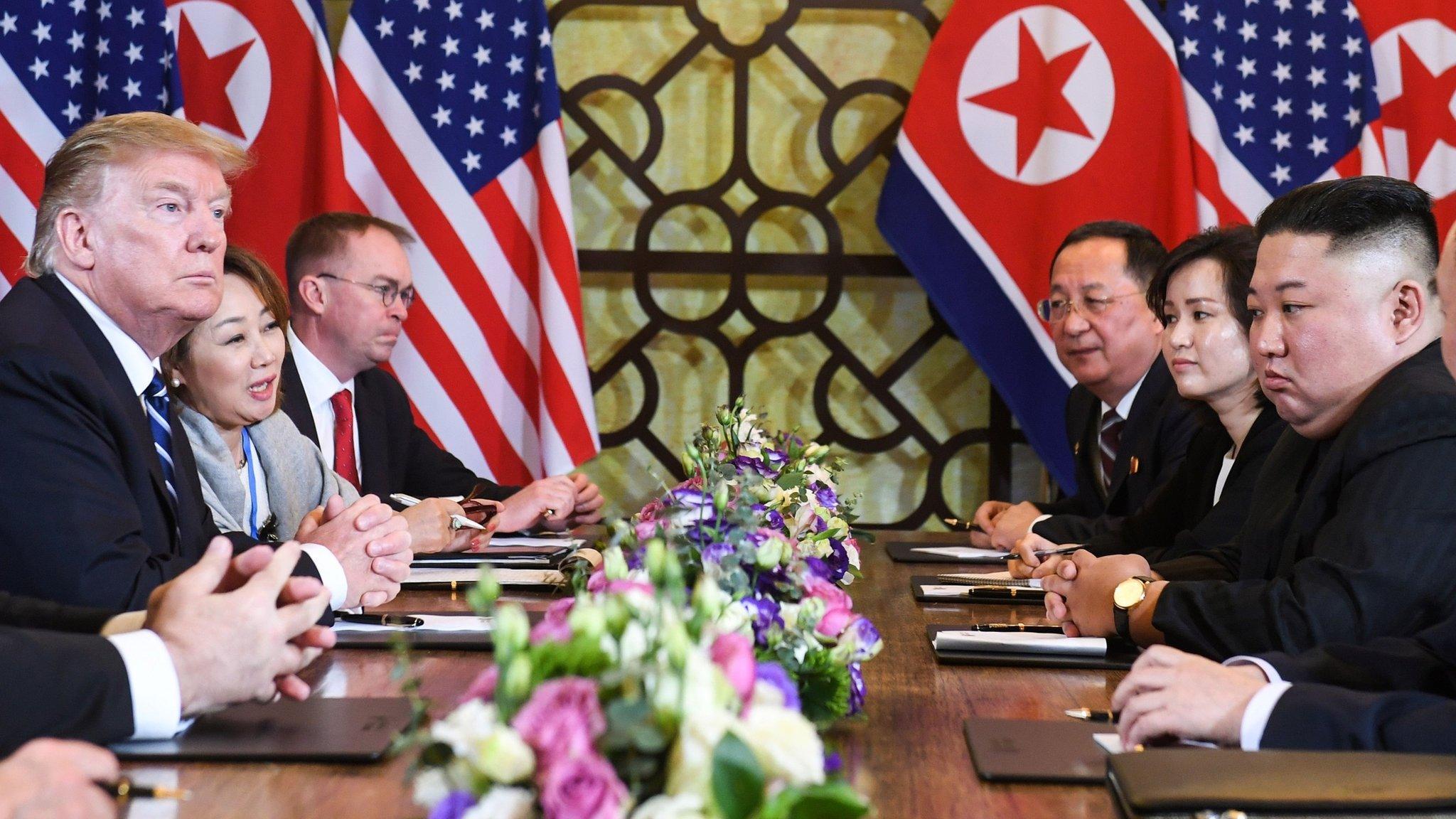
- Published26 February 2019
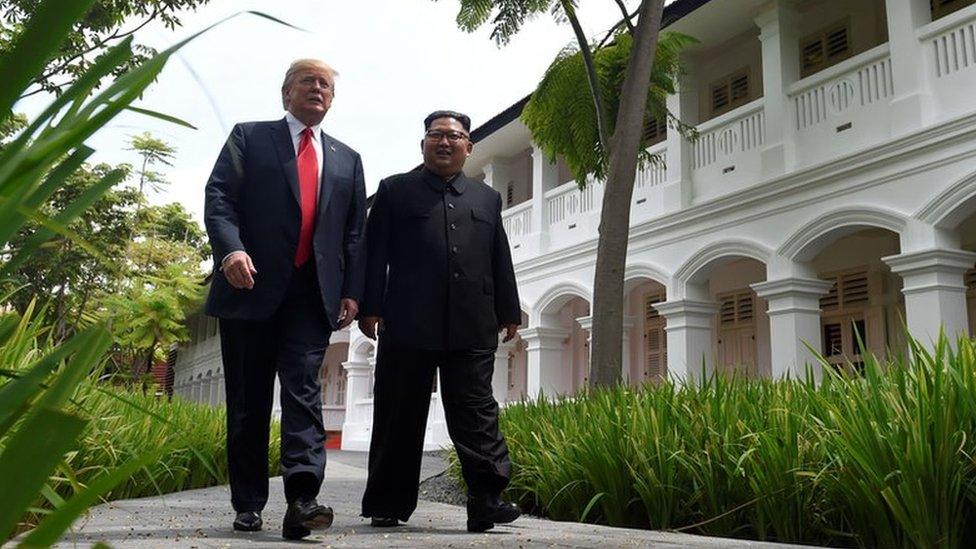
- Published27 February 2019
- Published27 February 2019
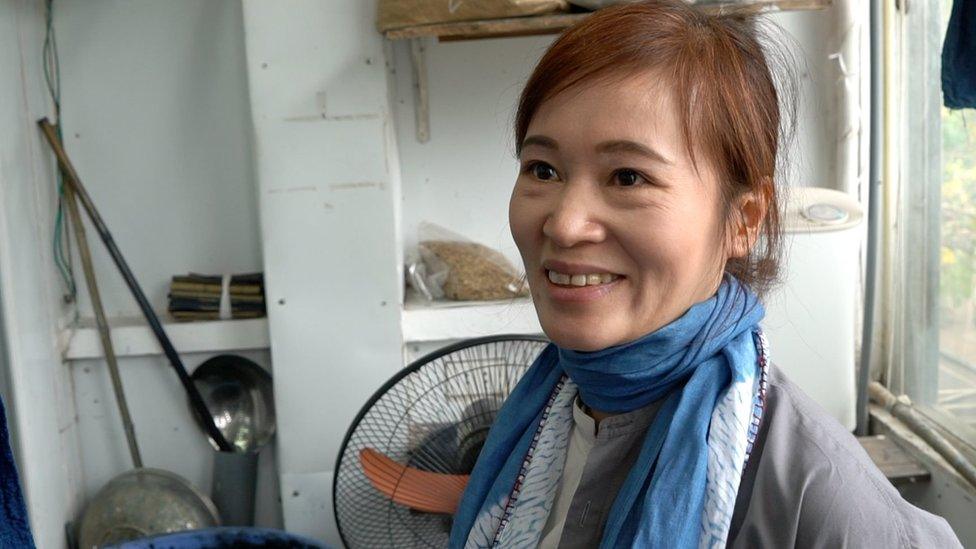
- Published26 February 2019
